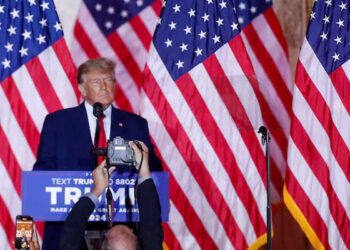Trump’s Cabinet Selections: A Bold New Direction
Donald Trump’s return to the presidential office has stirred significant discussion around his cabinet choices. In a series of announcements, the president-elect has given insights into his vision for governance, showcasing a blend of seasoned politicians and controversial newcomers. This blog delves into the details of his cabinet selections, providing an overview of the notable figures chosen for pivotal roles.
The Secretary of State Selection: Marco Rubio
One of Trump’s most strategic picks was Senator Marco Rubio from Florida for the position of Secretary of State. Rubio, a former competitor in the Republican presidential primaries, has a long-standing presence in Washington and brings a wealth of political experience to the role. If confirmed, he would also become the first Latino to hold this prestigious position in U.S. history. This choice reflects Trump’s intent to unify the party by selecting someone who had previously stood against him during the campaign but has since become a supportive ally.
Controversial Choices Emerge
While some appointments have been praised, others have raised eyebrows within political circles. A particularly noteworthy appointment was Rep.-elect Matt Gaetz from Florida for Attorney General. Gaetz, only 42 years old, has faced scrutiny due to ongoing ethics investigations and a recent resignation from Congress prior to being re-elected. His selection underscores Trump’s willingness to push conventional boundaries in his cabinet choices, emphasizing loyalty over traditional qualifications.
A Unique Secretary of Defense: Pete Hegseth
In a surprising move, Trump appointed Pete Hegseth as Secretary of Defense. Hegseth, known primarily as a Fox News contributor and author, brings military experience as an Iraq veteran and Army National Guard officer but lacks formal political credentials. This appointment has left military insiders perplexed, as they typically expect defense secretaries to have substantial government or military experience. Hegseth’s appointment signals a potential shift in how military leadership might be perceived in the coming administration.
Diverse Leadership: Tulsi Gabbard and Kristi Noem
Adding to the cabinet’s diversity, former Democratic Congresswoman Tulsi Gabbard is set to serve as the Director of National Intelligence. Her unique background as a National Guard member, veteran, and 2020 presidential candidate presents a rare bi-partisan element in Trump’s cabinet. Meanwhile, Kristi Noem, the Governor of South Dakota, has been appointed to lead the Department of Homeland Security, further solidifying Trump’s trend of selecting strong, recognizable figures within the GOP.
Rising Stars in the Republican Party
The appointments of Rep. Elise Stefanik as the U.S. Ambassador to the United Nations and Mike Waltz as National Security Advisor highlight Trump’s focus on bringing fresh talent into leadership roles. Both individuals have gained a reputation as dynamic figures within the Republican Party, signaling a potential shift towards a more vibrant and youthful cabinet. John Ratcliffe’s appointment as CIA Director denotes a commitment to national security, while Lee Zeldin’s role as the EPA administrator aligns with Republican goals for deregulation in environmental policy.
Innovations in Governance
In an unexpected move, Trump announced plans to create a new department dedicated to government efficiency. This initiative will be led by Tesla CEO Elon Musk and businessman Vivek Ramaswamy, indicating a potential emphasis on innovating traditional governmental processes through business-minded leadership. This initiative could represent a broader ambition to merge governmental functions with corporate efficiency, potentially reshaping how federal operations are managed.
A Cabinet of Contrasts
Trump’s cabinet selections reveal a complex and multifaceted approach to governance. By balancing seasoned politicians with lesser-known figures, Trump is crafting a team that reflects both continuity and change. This cabinet not only represents a cross-section of the Republican Party but also signals Trump’s strategic intent to unify and energize his base.
Through these appointments, Trump appears committed to pushing boundaries and reshaping Washington’s traditional power dynamics. With each selection, the implications for U.S. domestic and foreign policy continue to unfold, leaving many eager to observe how this unique blend of leaders will impact the nation in the upcoming term.





